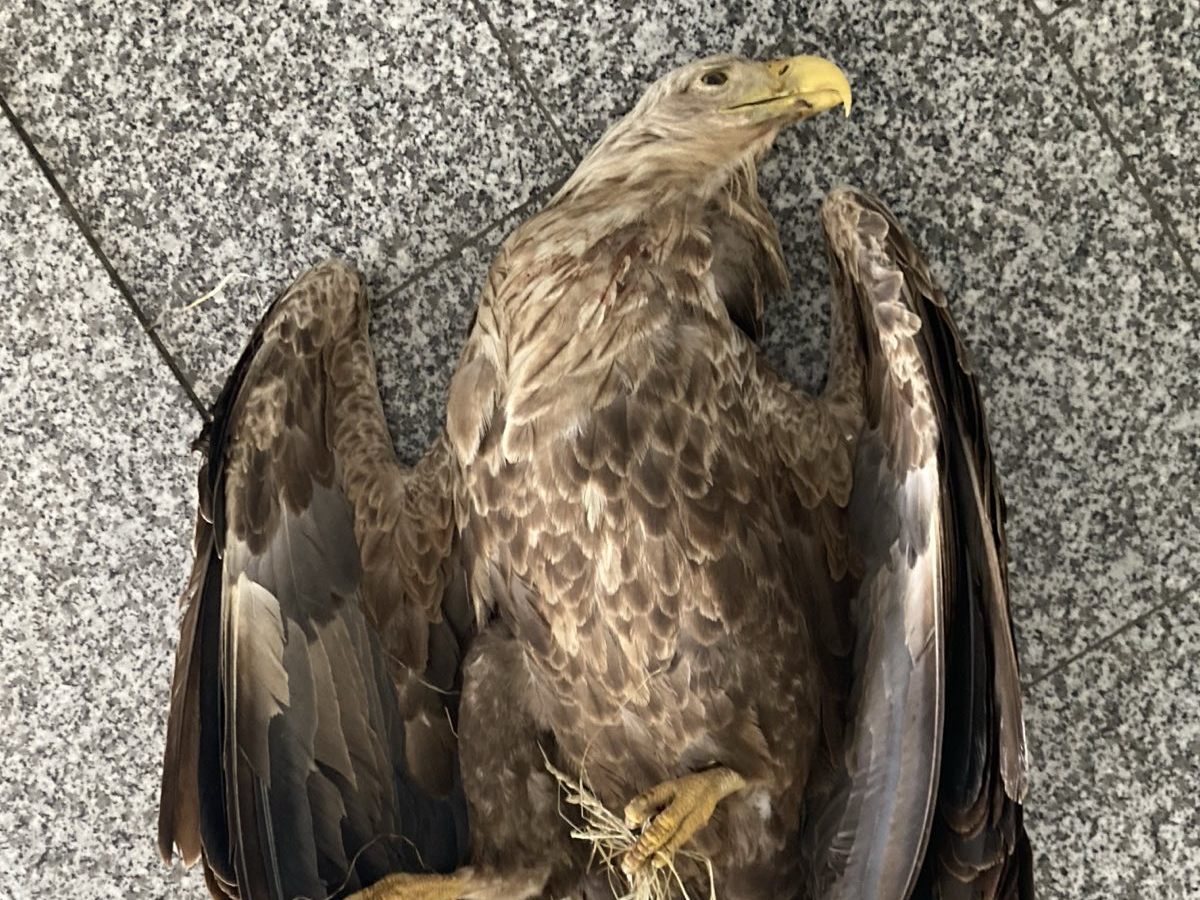Unknown Kill Sea Eagle with Illegal Poison: Information Requested

A white-tailed eagle found next to a fox cub in early May in the municipality of Unterlamm in the district of Southeast Styria was poisoned. The pathological examinations confirmed this, BirdLife Austria announced on Friday. The bird of prey died from Carbofuran, a highly dangerous pesticide banned in this country since 2008. Apparently, the previously shot fox cub served as a prepared poison bait. BirdLife and the WWF have filed a report.
White-tailed eagle poisoned: Indications of targeted baiting
On May 7, a passerby discovered an adult white-tailed eagle with a young fox in its talons in the cadastral municipality of Magland of Unterlamm. According to BirdLife, the bird of prey appeared severely impaired and showed no instinct to flee. Its condition was so poor that it allowed itself to be captured. Despite expert care, the animal died shortly thereafter. The district administration of Southeast Styria initiated investigations into the cause of death.
"During the pathological analysis at the Research Institute of Wildlife Ecology (Vetmeduni Vienna), purple granules were found in the eagle's digestive tract. The toxicological analysis revealed: It is Carbofuran. The poison was also detected on the carcass of the fox cub - it had previously been shot with hunting ammunition. The evidence clearly points to targeted baiting," BirdLife reported.
Carbofuran: Illegal poison with deadly effect
According to a release, Carbofuran is "a highly dangerous pesticide, possession of which has been banned in Austria since 2008." Even the smallest amounts can be deadly for wildlife, pets, and even humans. Johannes Hohenegger, bird of prey expert at BirdLife Austria, spoke of a "particularly insidious form of wildlife crime." For Christina Wolf-Petre of WWF Austria, the incident is "a serious attack on the biodiversity of Styria." Such crimes must not go unpunished."
BirdLife and WWF have reported the case to the State Criminal Police Office of Styria. Additionally, information from the public is requested.
(APA/Red)
This article has been automatically translated, read the original article here.





